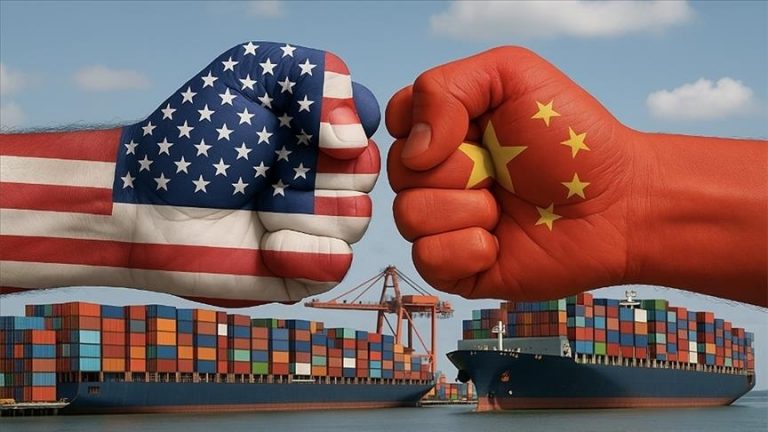
After two days of intensive trade talks in Geneva, the United States and China have agreed to establish a new “economic and trade consultation mechanism” and to significantly roll back tariffs that have strained relations between the world’s two largest economies.
The announcement follows what both sides described as “constructive” and “candid” negotiations aimed at easing a years-long tariff war.
Chinese Vice Premier He Lifeng, who led Beijing’s delegation, told reporters that “the two sides have taken an important step to resolve differences through equal dialogue and consultation.” He said the discussions led to the decision to create a joint mechanism that will facilitate further negotiations on economic issues of mutual concern.
Register for Tekedia Mini-MBA edition 19 (Feb 9 – May 2, 2026).
Register for Tekedia AI in Business Masterclass.
Join Tekedia Capital Syndicate and co-invest in great global startups.
Register for Tekedia AI Lab.
“We will issue a joint statement on Monday,” He announced, according to China’s official Xinhua news agency, adding that both sides are preparing for “further consultations.”
He expressed Beijing’s willingness to continue working with Washington “to manage differences, expand areas of cooperation, and make the pie of cooperation bigger.”
State broadcaster CCTV reported that “substantial progress” was made during the talks, describing the atmosphere as “candid, in-depth and constructive.”
Tariff Cuts: 90-Day Timeline Set
One of the most significant outcomes of the meeting was an agreement by both sides to begin reducing tariffs that had been imposed during the escalating trade conflict. The Financial Times reported that under the new arrangement, the U.S. will lower tariffs on Chinese imports from a current average of 145% to 30%, while China will reduce its tariffs on U.S. goods from 125% to 10%. These reductions are expected to take place over a 90-day period.
Vice Premier He emphasized that while China remains open to dialogue, it will not be intimidated. “China will not be afraid,” he said, according to Reuters. “If the United States insists on continuing the trade war, we will fight to the end.”
The American delegation was led by Treasury Secretary Scott Bessent and U.S. Trade Representative Jamieson Greer.
Secretary Bessent said, “I’m happy to report that we’ve made substantial progress between the United States and China in the very important trade talks.”
Greer confirmed the establishment of the consultation mechanism, calling the outcome “a deal we struck with our Chinese partners.”
“This was, as the Secretary pointed out, a very constructive two days,” Greer said in a White House statement. “It’s important to understand how quickly we were able to come to agreement, which reflects that perhaps the differences were not so large as maybe thought.”
Markets React Positively
Following the news from Geneva, global markets responded favorably. U.S. stocks rallied on Monday morning, with the S&P 500 and Dow Jones both opening higher, as investors welcomed signs of a thaw in U.S.-China trade tensions. The tech-heavy Nasdaq also saw gains, buoyed by hopes that reduced tariffs will benefit supply chains and ease cost pressures on consumer goods.
Business Insider reported that “markets are cheering positive signs from trade talks with China over the weekend,” citing gains across key indices. The article noted that “investors were encouraged by the tariff rollbacks and the commitment to dialogue between Washington and Beijing.”
What Comes Next?
The joint statement expected on Monday will outline the framework of the new consultation mechanism, identify priority areas for dialogue, and provide a schedule for future talks.
The Geneva agreement marks a significant moment in U.S.-China relations, which have been clouded by trade disputes, sanctions, and geopolitical rivalries in recent years. While challenges remain, the tone and outcome of the talks suggest a willingness by both parties to reset the trajectory of their economic relationship, at least in the short term.
However, both sides made it clear that further negotiations will be needed. And while tariffs are being reduced, they are not being eliminated entirely.
Vice Premier He said, “The door to cooperation is open, but we will not compromise on core interests,” a sentiment that Greer echoed, noting “There’s still work to do, but we’ve demonstrated what can happen when both sides sit down in good faith.”
This means that nothing so far is concrete. While the progress recorded so far underlines hope for a positive outcome, the negotiation is still open, with a lot of potential.



